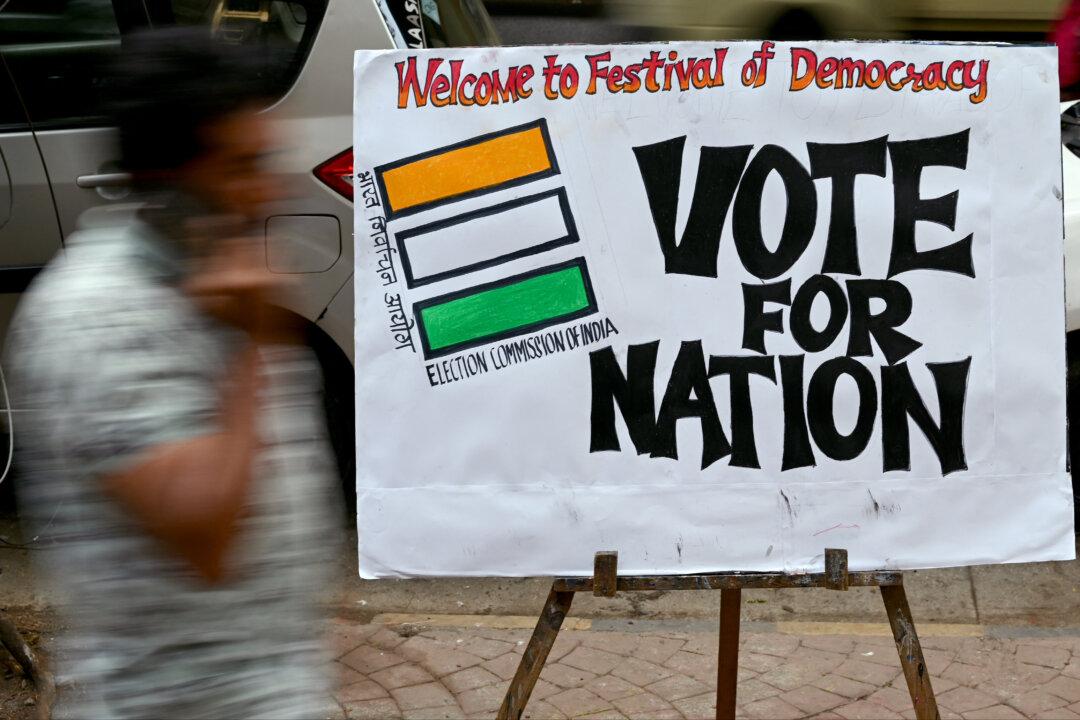NEW DELHI—Nearly a billion Indians are going to the polls to vote for the country’s 18th parliament. Polling for 543 seats in the Lok Sabha, the lower house of India’s parliament, takes place in seven phases from April 19 to June 1. A new ruling party will be declared on June 4. This interplay of electoral democracy, the largest event of its kind in human history, given India’s huge voting population, also marks a time of reflection for democracy watchers and thought leaders—those who attempt to remain unstirred by the intense battle of emotions generally provoked by elections in India.
They are analyzing election campaigns, watching political behaviors, tracking public opinion and maintaining a playlist of both loud and discreet messages blaring from election grounds, while thinking about where and how India’s institutional growth is possible. Any exhaustive analysis of such a vast demography is difficult, as the community of analysts discusses how a rising India will continue to overcome the challenges that confront its democracy, while continuing to evolve its goals.





